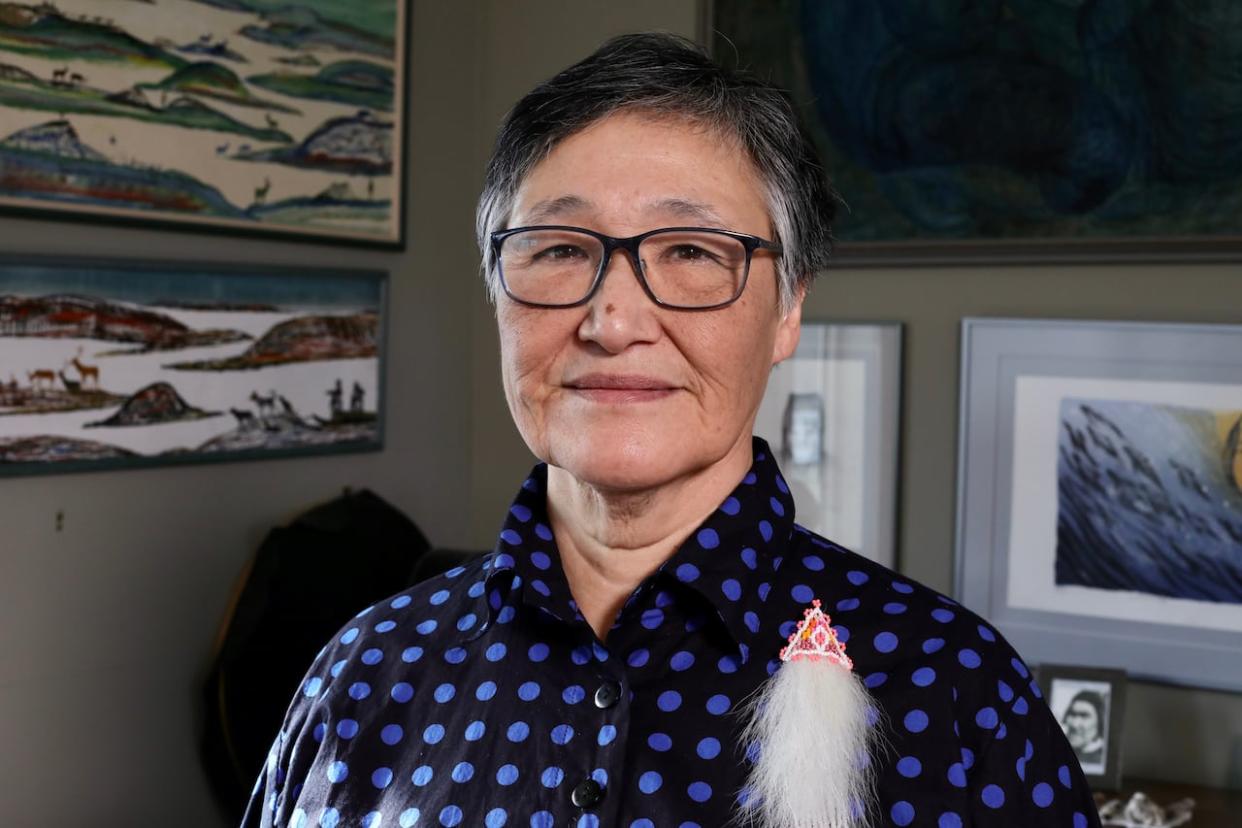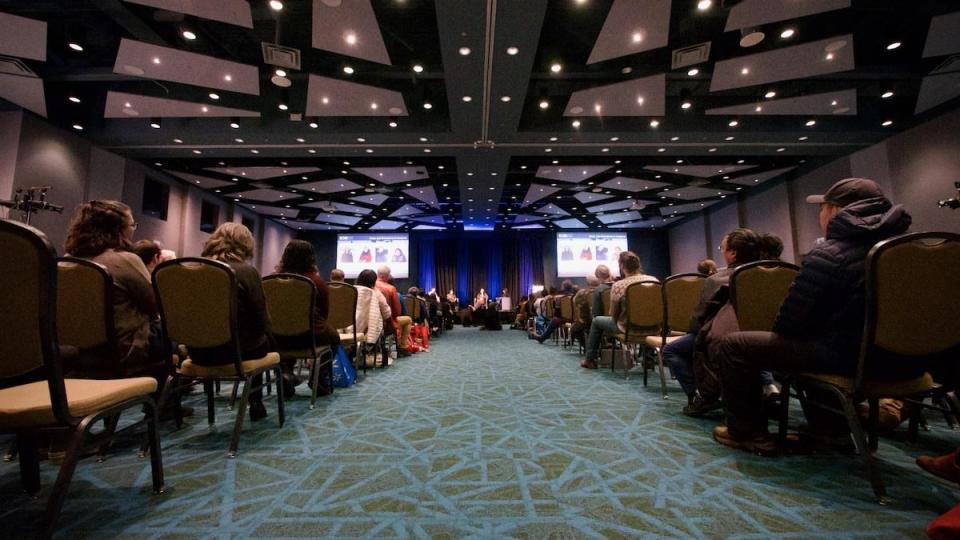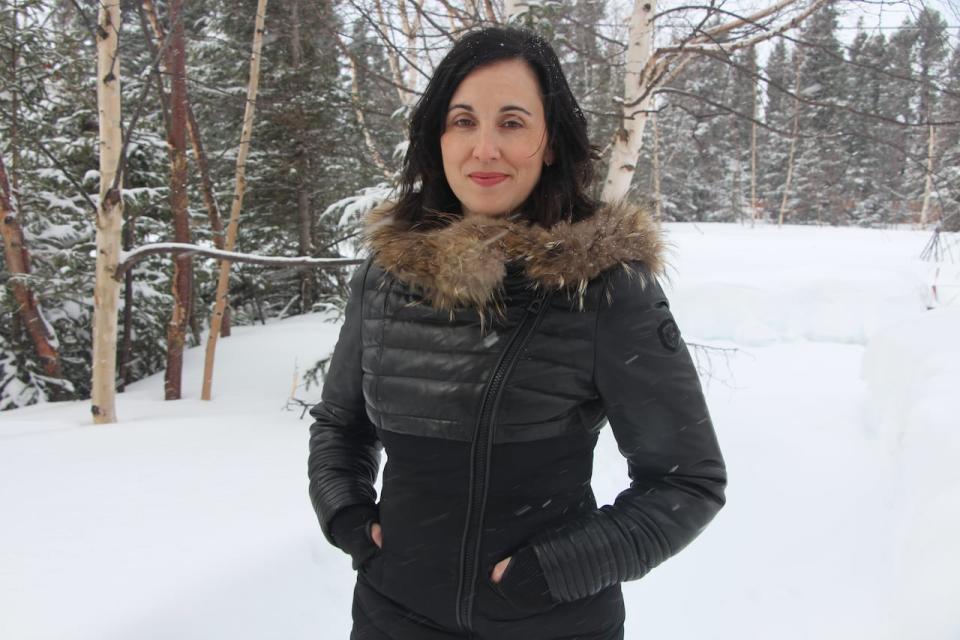Report urges change to address 'incredible inequalities' between southern researchers, northern communities

A new report from the Council of Canadian Academies lays out changes to the way Arctic and northern research is carried out so that it better serves the North.
The council, an Ottawa-based non-profit that brings together experts to evaluate science research and policy, sought to answer a question posed by more than 40 organizations in Canada: what is needed to make research more inclusive, collaborative and effective?
A 10-person expert panel of academics and researchers, half of which self-identify as Indigenous, published their findings in a report this week. The report was presented by the panel's two co-chairs at the ArcticNet conference in Iqaluit on Thursday.
"For so long the research that was happening in the Arctic and northern regions was driven by southern institutions, southern researchers, southern questions," said Ashlee Cunsolo, one of the co-chairs and the founding dean of the School of Arctic and Subarctic Studies at Memorial University's Labrador campus.

ArcticNet's annual scientific meeting took place at the Aqsarniit Hotel and Conference Centre in Iqaluit this week. The event was expected to attract more than 300 people in-person, and more than 150 online. (Matisse Harvey/Radio-Canada)
Karla Jessen Williamson, the panel's other co-chair, pointed to "incredible inequalities" that exist between southern researchers and Indigenous communities. Jessen Williamson is an Inuk woman from Greenland and an associate professor at the University of Saskatchewan.
"Researchers … come with their own questions, come with their own methodology, come with their own funding, and research in the far North is so expensive that most likely they're multi-million dollar research activities," she said. Compare that to the income of Indigenous populations, she said, and "inequality becomes very obvious."
Cunsolo said making northern research equitable and fair means addressing that power imbalance and making sure the North is leading the research, rather than playing host to researchers from other institutions.
The report outlines parties that are responsible for change, and the type of change the panel believes would improve the system: moving funding and research infrastructure to the North, recognizing Indigenous peoples' rights to own and control their data and knowledge, and fostering Indigenous-led education systems.
What the panel proposes
Cunsolo said research funding is often made available to universities. Although there are some post-secondary institutions in the North, only one — Yukon University — is a university.
"The money is circulating through southern research infrastructure, so even if they come north and maybe they're hiring people or they've got co-researchers, the vast majority of the funds are still in the South, supporting southern institutions" she said.

Ashlee Cunsolo, the founding dean of Memorial University's School for Arctic & Subarctic Studies, is the other panel co-chair. She said research happening in the North and Arctic has long been driven by southern institutions. (John Gaudi/CBC)
What the panel is proposing, she said, is that more research funding go directly to northern institutions and infrastructure.
The panel also says education in the North should recognize and affirm "all forms of learning," including Indigenous-led accredited programs that can protect Indigenous knowledge systems, advance educational attainment and boost northern capacity.
"Supporting Indigenous Peoples' rights to own and control their data requires that information is shared in accessible formats, including being translated into Indigenous languages," the report reads.
The raven and the wolf
The report includes the perspectives of the raven and the wolf, which Jessen Williamson said are central figures in many northern Indigenous knowledge systems.
"These are the basic, basically the very first foundations that we thought were ethically appealing in terms of the Indigenous perspective and that of the Indigenous values," she explained.
For example, there's an excerpt at the outset of the report, taken from a book of Inuit creation stories about the battle between day and night in the Arctic, in which raven is a central figure. Afterward, there is an explanation of the story's relevance to the report.
"The panel relies on the teachings of raven and wolf to guide its discussion, insights and analysis, in order to bring together different lenses and knowledge systems to produce a collective and holistic appreciation of Arctic and northern research," the report reads.
The report also says research should be carried out in "a good way," — which includes reaffirming rights laid out in the United Nations Declaration on the Rights of Indigenous Peoples and calls to action from the Truth and Reconciliation Commission.

